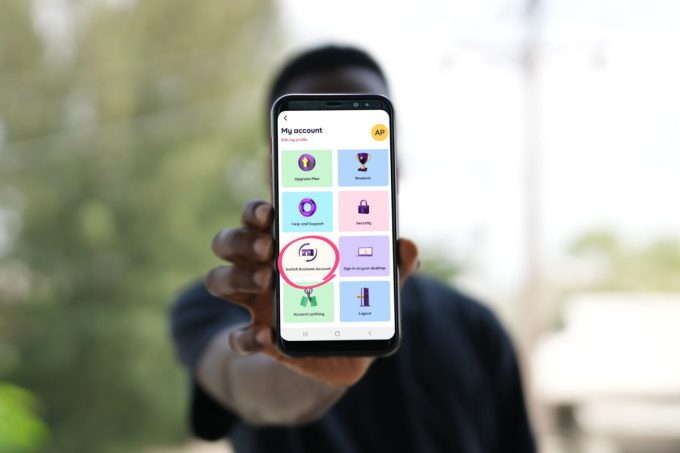- September 8, 2021
- by:
- in: Blog
Buy now, pay later is officially everywhere, and Latin America is no exception. Today, one startup in the region, Addi, is announcing a $75 million extension to its Series B, bringing the total round size to $140 million. In late May, the startup announced it had raised $35 million in an equity round led by
Buy now, pay later is officially everywhere, and Latin America is no exception.
Today, one startup in the region, Addi, is announcing a $75 million extension to its Series B, bringing the total round size to $140 million. In late May, the startup announced it had raised $35 million in an equity round led by Union Square’s Opportunity Fund, and $30 million in debt funding from Architect Capital.
The company, which has dual headquarters in Bogota, Colombia, and São Paulo, Brazil, declined to reveal its new valuation other than to say it is “nearly triple” what it was 90 days ago when it closed on the first tranche of its Series B, and that it is now in the “hundreds of millions” of dollars range.
New York-based Greycroft led the extension, which also included participation from new backers GGV Capital, Citius Capital and Intersection Growth Partners, as well as existing investors Union Square’s Opportunity Fund, Andreessen Horowitz, Endeavor Catalyst, Foundation Capital, Monashees and Quona Capital.
With the latest financing, Addi has now raised a total of $220 million in debt and equity since its September 2018 inception — $140 million of that in equity and over $80 million in debt.
Addi co-founder and CEO Santiago Suarez, says he, Daniel Vallejo and Elmer Ortega started the company with a vision of making digital commerce a reality in Latin America — a region where an estimated fewer than 25% of people have a credit card.
“To do this, we had to solve the payment problem,” he said. “We wanted to make frictionless payments possible while allowing customers to afford what they wanted.”
Addi started with a buy now, pay later offering, which allowed consumers to make purchases in minutes with “just a few clicks.” Today, the company allows customers to pay for their purchases over three months at no cost. For bigger purchases, Addi lets them pay for up to 24 months at what it describes as “competitive and fair rates.”
Addi is currently available for e-commerce, mobile and brick-and-mortar purchases in Brazil and Colombia, with plans to expand across Latin America in the coming years. In particular, it plans to enter the Mexican market in 2022.
Since the beginning of this year alone, Addi has grown its GMV (gross merchandise volume) by 13x, according to Suarez.
“And our ARR has seen similar growth,” he said.
Like many other companies, Addi temporarily saw a slowdown in business as a result of the COVID-19 pandemic. But it quickly bounced back.
“We lost 99% of our GMV in 20 days when the pandemic hit. We had to make some painful decisions, including letting go of many of our colleagues at a very difficult time,” Suarez recalled. “We also refocused the business on e-commerce and digital payments, and we haven’t looked back since then.”
As a result, Addi reached its pre-COVID high again in March/April of 2021, and has grown by about 3x since.
For now, the company is more focused on growth than profitability, Suarez added.
“This round has increased our focus on making digital commerce ubiquitous and accessible across Latin America,” he said.
Indeed, Latin America led the world in e-commerce sales growth last year. For its part, Addi currently has more than 150,000 customers, a number that is growing at 30% to 40% month over month. On the merchant side, it has close to 500 merchant partners, including brands such as Arturo Calle, Mario Hernandez, Keep Running and Claro. Earlier this year, it inked a strategic partnership with Banco Santander.
Addi currently has over 260 employees (or as Suarez put it, partners), up from less than 120 a year ago. The company prides itself as being “one of the few Latin American startups” that grants equity to everyone on staff.
“And we make it a point of speaking about partners and co-owners rather than employees,” Suarez told TechCrunch.
The company plans to use the new capital to speed up its product roadmap and geographic expansion. On the product side, it will be launching “a one-click checkout solution” for its merchant partners and customers by year’s end. Addi will also be accelerating its entry into Mexico, as mentioned previously, where it’s aiming to launch in early 2022.
Greycroft’s Thabet Mahayni said that prior to investing in Addi, his firm had been tracking the startup “for a long time.”
“In addition to an exceptional team, we believe the BNPL value proposition is stronger in LatAm than anywhere else in the world,” Mahayni told TechCrunch.” We…believe they have an opportunity to fundamentally reshape the entire consumer payments experience in the region.”
That is in part because currently, consumers in Latin America have very few alternatives when it comes to credit, he points out. Card penetration is very low and those who apply for credit “face a cumbersome and frustrating application process,” Mahayni added.
And those who do have credit cards are often given very low limits with high interest rates.
“It’s easy to see how this dynamic makes it difficult and expensive for consumers to access safe and reliable credit,” he said.
Addi, according to Mahayni, has “rebuilt the entire onboarding, underwriting and fraud stack so they can provide safer credit alternatives to consumers while enabling merchants to meaningfully increase their basket sizes and GMV.”
It’s the second LatAm investment for Greycroft, which previously invested in Rocket.chat, a Brazilian enterprise communication and collaboration platform.
In Mexico next year, Addi will join existing player, Nelo. That startup raised $3 million in April, and at the time, was live with more than 45 merchants and over 150,000 users. Also, Alchemy earlier this year entered the Mexican market.







